How have you and Torie separately and collectively fostered your relationship?
Torie: We talk a LOT. Hours upon hours. Checking in, taking breaks, rewording, clarifying, apologizing. We go IN and sometimes we’re not sure about the state we’ll be in once we emerge.
Pat: I read, read, read about adoption and race as separate and joint issues.
Torie: She reads almost as much as I do in my doctoral program! I have to remind her, “Mom take a break!” She is often drinking from the anti-racism fire hydrant instead of taking small sips every day. Now she is in multiple groups for accountability and community and is learning more and more every day. And I’m learning to be patient with her as she learns.
Pat: I also tried not to depend on my children for information, but listened, listened, and listened to them. I put my children first; made my own feelings secondary, understanding that their trauma is much greater. I accept that I will never fully understand but commit to being there for them regardless. I have an awareness that both my daughters handle adoption and race issues differently. And I give them freedom to do that. I got and encouraged counseling for both, one as an adolescent, the other as an adult. Regarding my own feelings, I shared them with two trusted individuals close to me and am now getting my own counseling to sort through my own feelings so I can better help my daughters. Collectively, we continue to keep lines of communication open and Torie and I have had one joint counseling session and hope to have more.
Torie: I would say in the last two years Mom and I have done an astronomical amount of work individually and together, and through that work she has become able to identify when something she feels, or thinks is better discussed with her therapist than with me. We’re creating boundaries for ourselves. One good example is a question my mom once asked, “So do you wish we’d never adopted you?” This is a question so many adoptive parents ask. I always encourage them to think about who that question serves. Does it benefit your adoptee or you to know that answer? Asking an adoptee if they wish they’d never been adopted is an unfair question: it in essence asks them to choose. It’s a question that centers adoptive parent feelings and their desire to be validated and needed. My mom has made a lot of mistakes, but the one thing she does well is pivot. Pivoting is an essential life skill, but it’s even more vital in adoption. 1. You mess up. 2. You learn. 3. You pivot. If you’re stuck on step one of messing up, you will never get to the pivot moments that bring you and your child healing and a closer, more meaningful relationship.
Pat: In my own mind, I have always tried to put her and her sister’s feelings and needs first – most of the time swallowing my own feelings and not saying what I really wanted to say. Still, I made mistakes and sometimes, as she stated, posed unanswerable questions like “do you wish we had not adopted you?” not realizing the negative impact that would have. Hearing Torie’s troubled response, and upon my own reflection, I realized I was looking to make myself feel better and I admitted that to her. I probably have not yet totally mastered the delicate balance between being honest and transparent with Torie and discussing things with her that should be shared with a therapist instead. I used to vent and still do to a confidant instead of Torie and just recently have begun sessions with a therapist. She is both an adoptee and an adoptive parent so I’m looking forward to learning more about myself as well as gaining insight from her.
What negative emotions do you and Torie have to combat the most in your ongoing mother-daughter relationship?
Pat: Regarding myself: I fear saying the wrong thing – something that would damage our relationship and /or something that increases her pain. My intentions are never to hurt but she reminds me to think of impact over intentions. Balancing the need for sensitivity with honesty is a continuing challenge. I have to fight focusing on my own feelings and needs. This battle is often with myself not always during our discussions but in my own mind after our discussions. I remind myself that the need to defend my own position can keep me from listening and or reflecting with an open mind. I also fear that Torie won’t find joy and contentment in life because of the emotional pain she is experiencing and that she’ll get stuck in or hold onto the trauma instead of growing because of it. I used to wonder how long before she would heal. Now I understand this is not something one “gets over” I just don’t want it to control her. There is within me a desire to protect both my daughters even as adults. Therefore, I am constantly checking myself (not without slip ups ) to avoid giving unwanted advice and to keep my opinions to myself. It’s hard to stand by and watch, but absolutely necessary that I allow them to live and learn from their own mistakes. On the other hand, The older both my daughters get the more insight they possess. It is usually with conflicting emotions that I receive their input or feedback. I feel a combination of pride as I hear their wisdom and a hit to my ego that the parent is learning from the child.
T: Yes! My mom (and also me – we’re a lot alike) let’s fear control her a lot. She focuses so much on what she has done wrong that it gets in the way of her doing better. It took a long time for her to stop beating herself up (and of course she still does sometimes) for the wrongs she committed early on in my adoption and start taking charge of what she could do now in the present to improve. I’m actually glad we talk on the phone a lot during this season rather than in person, because I’d get smacked for the number of eye-rolls I give her whenever she says, “Well I just don’t want to mess up!” I’m like, newsflash you’re human, you’re gonna mess up! As you can tell, I struggle to have patience sometimes with my mom and the emotions she feels towards adoption. She chose adoption. I did not. Now, instead of implicitly and/or unknowingly sharing her doubts and fears with me, she speaks with a therapist. I know adoption is hard for adoptive parents and I believe they should have a place and people that allow them to feel the full range of emotions that are entailed in this journey. But as an adoptee, and my mom readily admits this, I don’t have the capacity nor should I be burdened with the kind of empathy that adoptive parents need from an objective and outside individual. Together, we are still finding the balance. My adoptee brain often tells me to care for my mom, to console her, to be the perfect child so that I won’t become the unwanted child. Her people pleaser brain often focuses on not saying the wrong thing and alienating me, rather than being honest and in the moment. I tell you what, I know few people who put this much work into any relationship, sometimes, not even their marriage. And because of that, I’m really proud of how far we’ve come.
How do you navigate and preserve your relationship now, adult to adult?
P: I do so carefully, intentionally and with great effort. Torie is right, I let fear control me sometimes. Though I do it less and less these days. I depend heavily on my faith and derive comfort, strength, and guidance from the Lord. I vent to a person close to me and also have recently begun seeing a therapist who specializes in adoption.
T: Having other adoptees who just GET IT. Especially other adult adoptees that are navigating adult relationships with their parents who may have parented or still do parent with a color-blind mentality. Having that community to understand and share experiences with helps. As far as preserving my relationship with mom, we take a lot of breaks. My mom and I are talkers, and we love each other fiercely, and that sometimes means we exhaust each other. Limiting our conversations and focusing on one emotional task per phone call has been essential. Counseling for me has also helped me learn how to live autonomously and heal from my adoptee trauma so my other relationships can be healthier.
How has 2020 and the centrality of the Black Lives Matter movement shifted/impacted your relationship?
P: It has made me even more aware of racism and made me even more committed to be anti-racist and put myself under Black spiritual leadership. It has also caused me to actively pursue my long-time desire to develop relationships with Black people. The silver lining of COVID has been the widespread use of Zoom which has created the opportunity to meet and interact with people different from myself on a regular basis. All of this has helped me better understand my daughters’ position as biracial Black women in a predominantly white world.
T: Shew, 2020 was a YEAR in terms of racial violence. No one thinks about how a 24-hour news circle on police brutality impacts transracial adoptees who might not have the right tools or support to turn to their white family during moments of heightened racial trauma. 2019 was the year I started challenging my family to be actilvely anti-racist. We started discussing topics like veiled racism, Colin Kaepernick, protests, white privilege. It was all on the table and it still is. Our conversations are often messy, long, painful, enlightening. I adore my family. They have given me some of my greatest qualities and some of the greatest opportunities. But nothing prepared me for the realization that some of them are clinging to ideologies that directly impact and harm me. It has taken a lot of work for us to see, understand, and continue to love each other despite those realizations.
What advice would you give someone starting their anti-racism journey?
P: Read, read, read a variety of Black authors. Be involved in communities of color, and listen, listen, listen to People of Color. When you hear and read things that are hard, and things that are not your experience, If your belief system includes God, pray that He will open your heart and mind to truth. Be open to the idea that you may unknowingly hold certain biases, and if you don’t recognize the bias in yourself, pray that it be revealed to you. Social justice commands are all over the bible. In light of God’s word, examine your own heart. The journey begins with awareness but it can’t stop there.
Jemar Tisby in How to Fight Racism, talks about the ARC of racial justice: A=Awareness of racist strategies, R= Relationships (often the desire for change comes through relationships) C= Commitment to dismantle racist strategies, laws etc. But just like parenting in general, you can read all the books you want and think you’re prepared, but living it is another story. Sadly, sailing through childhood can give parents a false sense of security, that all is well until it isn’t. Until life explodes. The sweet faces of our children and the intense love we have for them, lulls us into thinking love conquers all. Love, in fact, is powerful. And I agree with MLK when he said that he was “Convinced that love is the most durable power in the world.” But that love must drive us to action.
T: One piece of advice for starting your anti-racist jounrey is don’t do it alone. Find a workshop or group, led by an experienced and trustworthy educator that not only teaches you but keeps you accountable. I would also say that drowning oneself in anti-racism literature can function, unintentionally, as an optical illusion of anti-racist work. Many white people are propelled into overdrive by the fear of being or being perceived as racist, by guilt, by shame. None of which are adequate fuel for anti-racist work and all of which re-center themselves.
P: I am in total agreement. Reading increases awareness, but by no means should it ever be confused with anti-racist work.
T: Get comfortable being uncomfortable.
What do you and Torie admire most about each other?
T: I admire my mom’s seemingly endless compassion. She listens more than anyone else I know and she never seems to run out of patience for other people’s hardships. I also am amazed by her tenacity when it comes to relationships. She fights really hard to be the best version of herself for those she loves. Also, she is really great at taking constructive criticism and rerouting – not many people have this skill especially those who are further along in life. It can be easy to say “I’ve always been this way,” or “This is what I’ve always known.” My mom doesn’t use those excuses and leans into growing. I love that about her. Even though she would vehemently deny it, she’s also really brave. Letting people into this intimate and vulnerable part of our life was not easy, and yet she took the jump.
P: I admire many things about Torie. To name a few – She has a big and empathetic heart. She is deeply creative, attuned to beauty, passionate, brilliant and loyal. She loves her family and adores her nephews. I so love that about her – especially the part about her nephews.
WRITTEN BY VICTORIA DiMARTILE AND HER MOTHER PATRICIA DiMARTILE
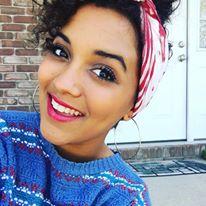
Torie is a doctoral student in Sociocultural Anthropology at Indiana University studying the impact of systemic racism on domestic transracial adoption. She’s a spoken word poet and a creative. A sister and an aunt. Torie also happens to be a transracial adoptee on a lifelong journey towards a healthy racial identity. To learn more about Torie and her work click here. Also consider financially supporting Torie here.

Pat DiMartile is a retired career counselor, nurse, and special education teacher. She has her Bachelors and a Masters in Education and has been married for 46 years to her husband, Art. She’s mother to two children and Nonni to two (soon-to-be three) grandchildren. Over the years she’s been involved in a variety of women’s and children’s ministries. Currently, she’s enjoying learning and growing in community with social justice groups like Be the Bridge and racial reconciliation groups at a local church. She currently resides in Fort, Mitchell KY where she and her husband enjoy spending time with their grandkids and taking trips to their Tennessee lake-house. She likes exercising, line-dancing (even though she’s not very good), Hallmark Christmas movies, anything chocolate, and losing track of the time talking with good friends or her beloved sister.
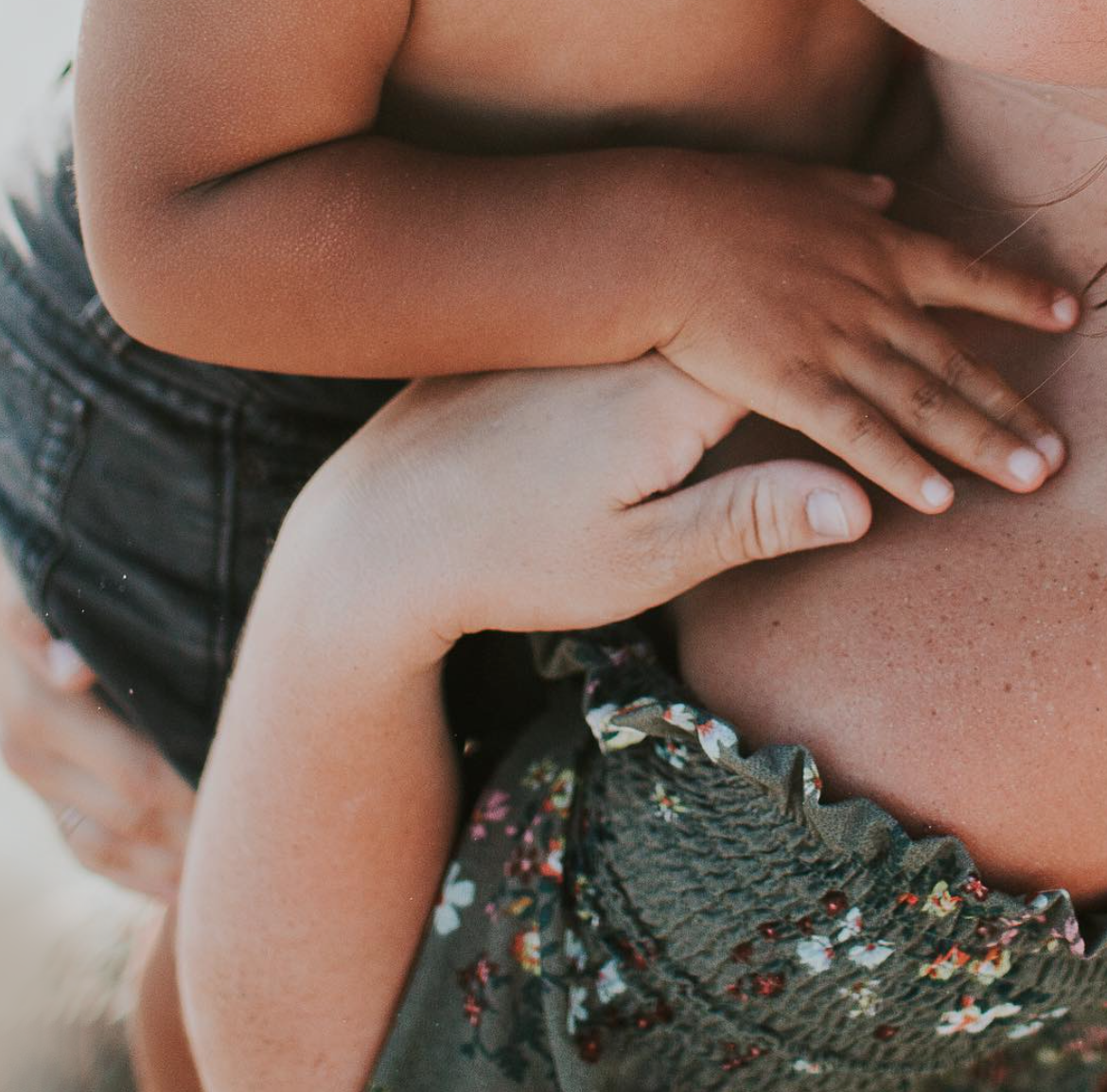







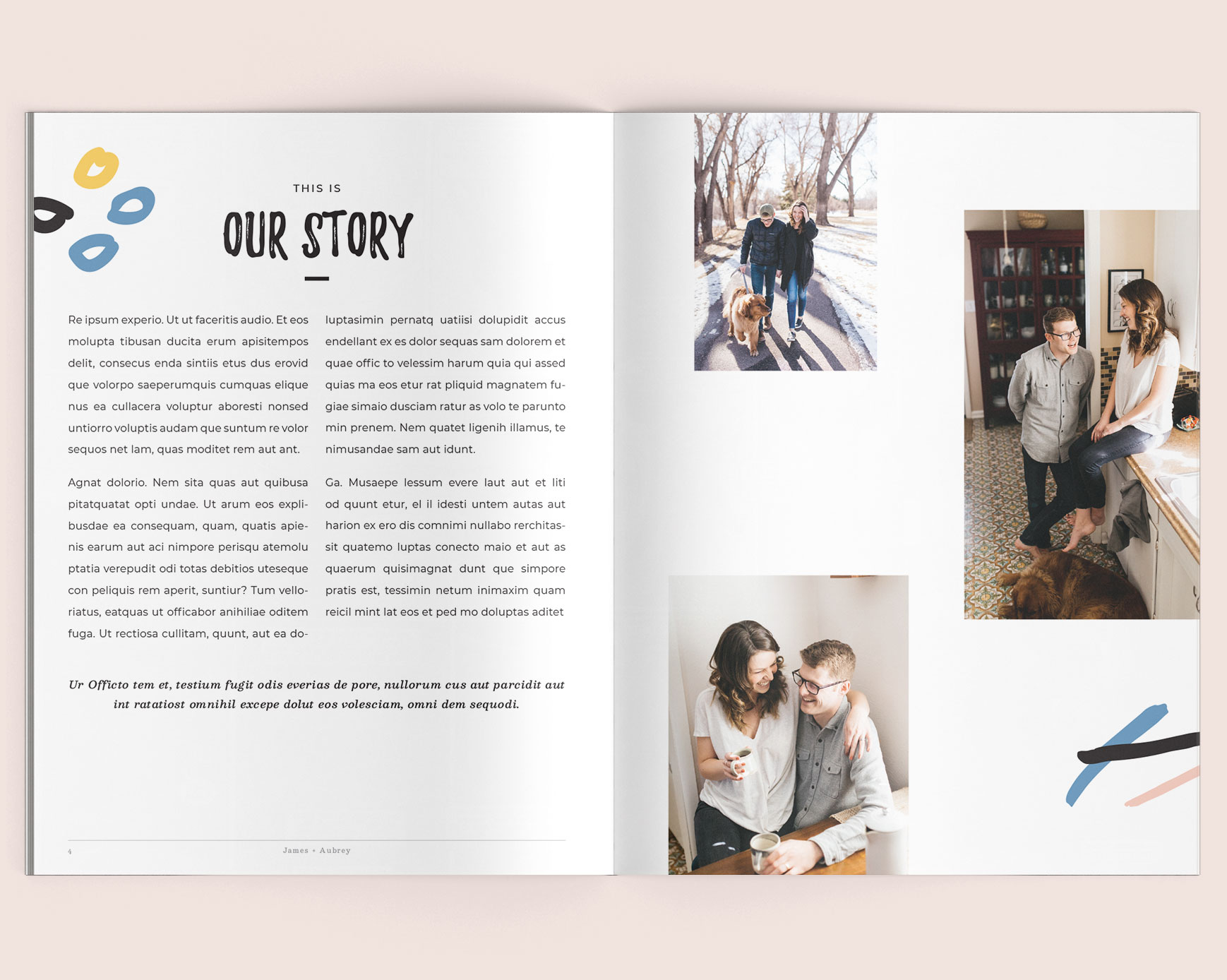
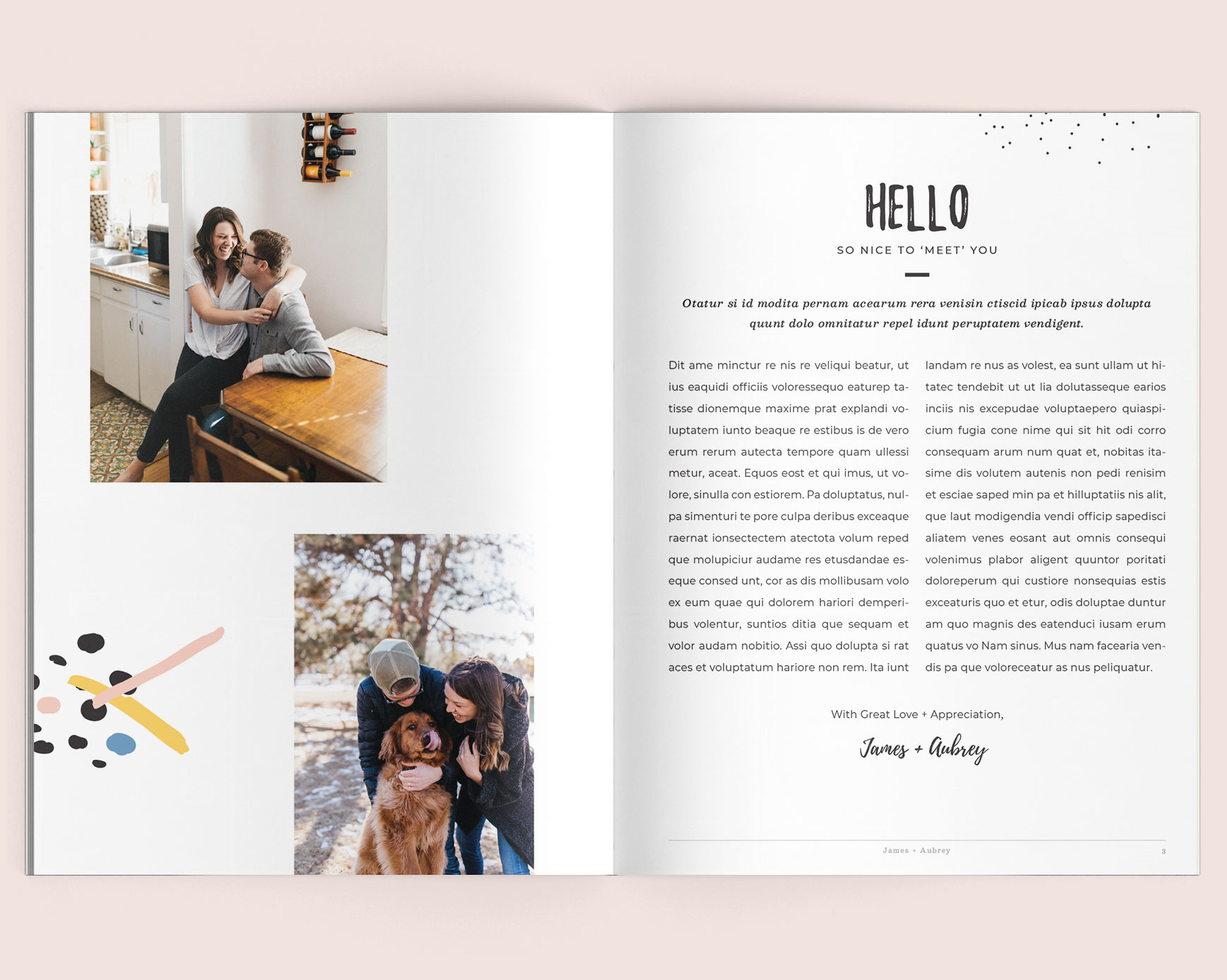
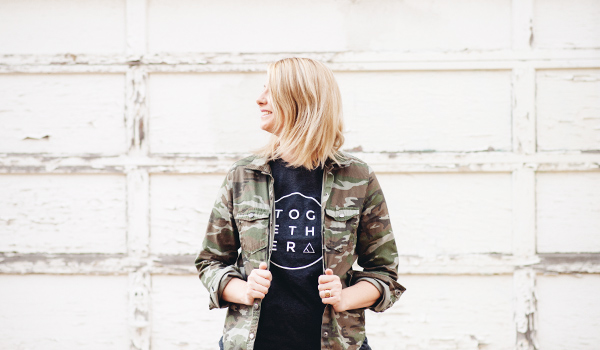
Kenneth DellovoWow. Not sure what to say. What a dynamic and trusting relationship.
As a father of a young, transracial adoptee I can only thank you for your open and honest dialog.
It is a joy each and everyday to raise my beautiful daughter, but I am often struck by the sadness that she does not fully know her biological family. I can only imagine what her sadness and potential void could be. I never want to project this sadness on her, but also want to me sure she has a channel to explore those feelings. Wow, is it complicated!
Anyhow, thank you again for your vulnerability and openness. People like you are paving the way for families like ours!